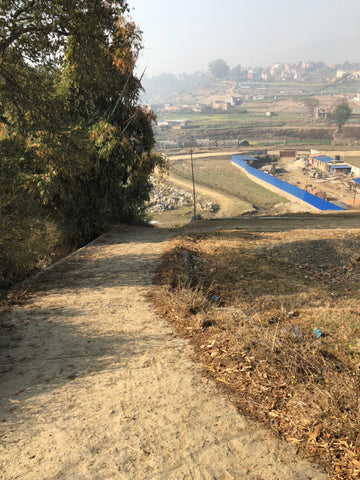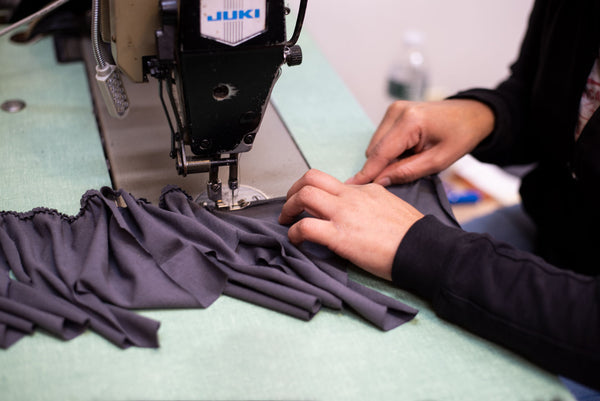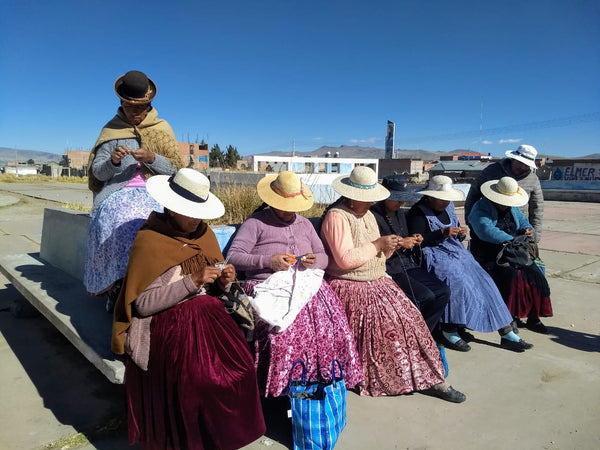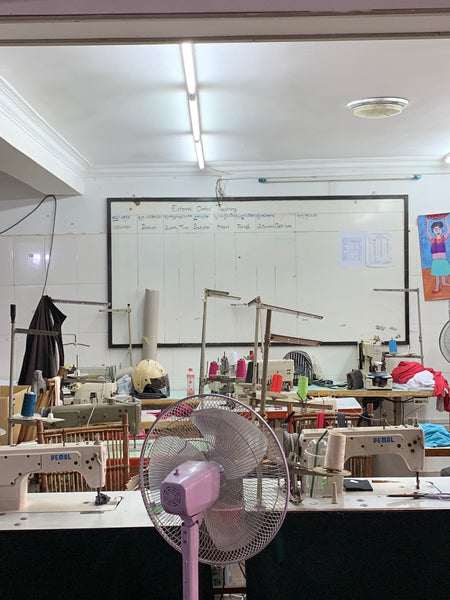Where Are They Made?
I used to worry so much about transitioning from a production method where I made everything myself in my attic (Really cute! NOT a sustainable business!), to a method where other people made our products, especially if some of those people were in other countries. I knew that if I wanted the business to grow and I wanted our price point to stay under $100, I had to find a form of outsourcing I could live with. But it used to seem impossible that dolls and animals made in foreign lands could ever be acceptable to our customers; or high enough quality; or decent in their impact on the world; or honestly, come with a good enough story about their production.
But ten years into making Hazel Village dolls and animals, our supply chain has grown into one of my favorite things about what we've built. It makes me so happy to think of our regular standing orders with our artisan partners around the world, and all the skilled humans we're therefore able to keep in full-time, fairly paid jobs. We've built strong relationships with our partner organizations, and now that the pandemic is messing up business-as-usual (not sure if you heard...) those relationships are serving us really well. Let me tell you about it.
PERU
In 2017 I got to go to a trade show in Lima, Peru. One of the booths specialized in hand knitting. They actually provided educational and social services for families up in the mountains, and part of that was to pay fair wages for home handicrafts. In the booth I spied a handmade doll wearing a whole knitted outfit. Her sweater was incredible: a tiny, bright yellow, frilly cardigan with working buttons. I left their team with a woodland animal to use as a fit model, and asked if they could make us a more streamlined version of the frilly sweater. Thus began a very fruitful working partnership.
At first, we weren't sure if our customers would pay the prices we would have to charge for these sweaters. Even in the remotest mountains, knitting is not cheap if you're paying fair wages. But when the first sample sweaters arrived, I couldn't believe how cute they were! I couldn't stop looking at them and playing with them. And fortunately, the customers saw what I saw. Year after year, we've been able to continue ordering and developing ever funnier styles of dolly knitwear. Next up: a hat that looks like a pinecone - a long time dream of mine!
NEPAL
As soon as we started working with our Nepalese partners, we knew they were special. They communicated in long, thoughtful emails, unlike anyone else we had worked with. I got to visit them in Kathmandu in early 2018. This is the valley I walked across every morning to get to the factory. I loved it.

Our partners in Nepal are primarily a factory, but they have a social mission to preferentially hire survivors of trauma or discrimination. They provide job training, personal development programs, living wages, and (delicious) breakfast and lunch every day. During my visit, I could tell that love and consideration permeated all they do.
Because we have a standing order of dolls and animals with these partners, we're able to keep a team of 6 working on our projects full-time. At this point, they're extremely good at making animals cute. Much better than I am. I feel so much appreciation for their beautiful work and it's an honor to be a customer of such a good organization.
During the pandemic, Nepal has been under a strict lockdown. Our partners are busy making PPE for the people of Nepal, so while the factory is open, they aren't able to do much for us at the moment. We understand, but we miss them. After all, these are the people we go to when we want to develop...ahem... new animals.
CAMBODIA
Our partnership in Cambodia is more recent. Our production director, Crystal, learned about this place through the NGO grapevine. They have a big operation providing social services for street kids in Phnom Penh, Cambodia. They train local social workers to check up on kids and build trust with them. Then they help the kids go to school and, when they're older, learn a job. They actually provide textile jobs as a way of employing the kids' parents. It turns out it's easier to make your kid go to school, if you aren't worried about putting food on the table.
Because their sewing operation is pretty small, really more a workshop than a factory, it took us longer to build capacity and get up to speed with our regular orders. First we just ordered bunnies and mice, then we tried owls. Then the Cambodian team made the doll clothes for our workwear collection. We were getting ready to sample more types of dolls when the pandemic shut everything down .... and then our partners in Cambodia really came into their own! During the past few months, they've been able to continue making things safely without too much interruption. Many Cambodians don't have running water at home, but in the workshop they're able to provide laundry service and clean water for drinking and washing. And meanwhile, the drop in tourism has messed up demand for the other products they make, so they have more capacity to work on our orders. Lucky because we need a lot from them right now! I'm excited about all the projects we're working on together.
BROOKLYN

Of course, the closest to my heart is our workshop in the back of our store in Brooklyn. Without access to local production, we could bring you a lot of cute stuff, but we couldn't go the extra mile and make my craziest design dreams come true. Our two full-time seamstresses both have backgrounds in the garment industry, so they can make big batches of doll clothes like pros. I've learned so much about different industry equipment and techniques from them. And I could wax poetic about all our sewing machines, which I love, but that is a story for another time.
We try to focus our attention on smaller batch styles where the sourcing is complicated. During the pandemic, both seamstresses have been working from home - one already had a sewing machine at home, and one is using a machine we moved from the store, right before things got extra crazy. Everything is a little more complicated this way, but it's more or less okay. I really miss shopping in the garment district, though. Fabric shopping for the outfit contest winner was extra complicated because it all had to be done through websites that we believed would probably kinda ship in time. Much easier to just run to the city.
There have definitely been times when it seemed insane to have such a complicated sourcing situation: why have all these small vendors doing so many little projects, with so many moving parts that could break? But now that everything is so shaken up from the pandemic, I especially see the benefits of our resilient, human-scale operation, and I'm so grateful. Of course, it's only possible to continue placing orders if we know we have demand for our products. So we feel a lot of responsibility to keep the cute ideas coming! And we're so grateful that you trust us with your gifting needs. Your orders make the whole thing possible.
Jane Van Cleef, founder & designer of Hazel Village

